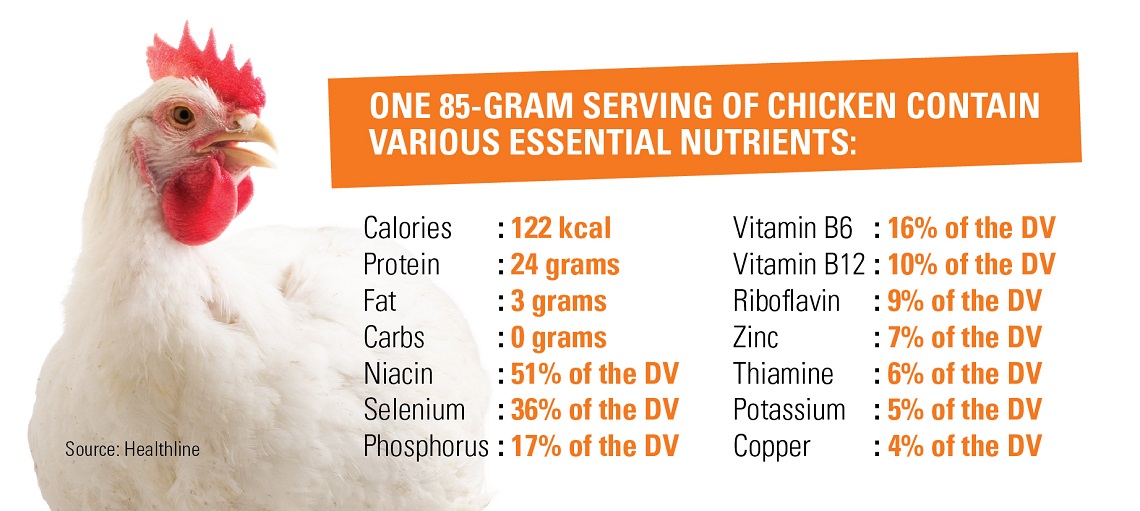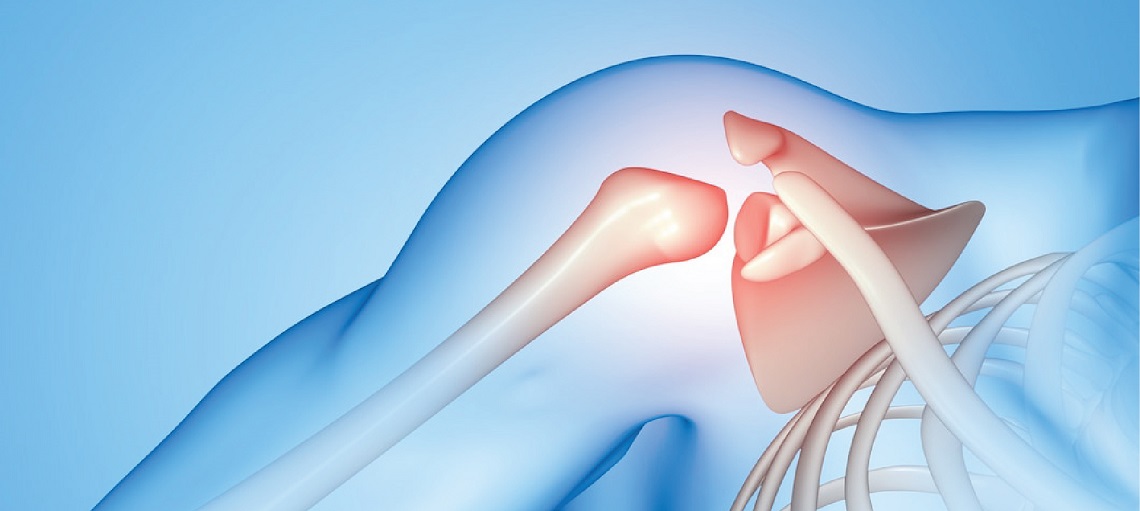Beyond the Farm: The Nutritional & Health Benefits of Chicken
The humble chicken is considered as the world’s most popular protein source. In fact, research suggests that as of 2022, 70 billion chickens were slaughtered for meat worldwide annually, whereas other protein sources such as duck and pig barely made it to the 10 billion mark. This is partly due to modern poultry production techniques that has made it much more economical to farm broiler chickens quickly on a large scale. Chickens also have a lighter carbon footprint compared to beef, lamb and goat, making it a responsible and nutritious choice for sustenance.
The Nutritional Profile of Chicken

Chicken, particularly when consumed without the skin, is a low-fat, high-protein food that provides a variety of essential nutrients:
1. High-Quality Protein
Chicken is an excellent source of high-quality protein, containing all the essential amino acids required for muscle growth, repair, and overall body function. A 100-gram serving of skinless chicken breast provides about 31 grams of protein.
2. Low in Fat
Skinless chicken breast is particularly low in fat, with about 3.6 grams of fat per 100 grams, of which only 1 gram is saturated fat. Darker cuts of chicken, such as thighs and legs, have slightly higher fat content but are still relatively low compared to red meats.
3.Vitamins and Minerals
Chicken is rich in essential nutrients, including B vitamins (niacin, riboflavin, B6, and B12), which are vital for energy metabolism and maintaining healthy nerve function. It also contains significant amounts of phosphorus, selenium, and zinc, which support bone health, immune function, and cellular repair.
4. Low in Calories
With only 165 calories per 100 grams of skinless chicken breast, chicken is an ideal protein source for those managing their caloric intake or aiming to lose weight.
Chicken for Better health
As a common dietary staple the world over, chicken is rich in important nutrients that can be an excellent addition to a well-balanced diet, provided of course it is prepared in a health-conscious way.
1. Muscle Growth and Repair

The high protein content in chicken supports muscle growth and repair, making it a favoured choice for athletes and those engaged in regular physical activity.
2. Weight Management

The combination of high protein and low fat makes chicken a filling and nutritious option for those looking to manage or reduce their weight. Protein has a high satiety value, which can help control hunger and reduce overall calorie intake.
3. Heart Health

Choosing lean cuts of chicken over higher-fat meats can contribute to better heart health by reducing the intake of saturated fats, which are linked to increased cholesterol levels and heart disease risk.
4. Bone Health

The phosphorus and calcium in chicken contribute to maintaining strong bones, while the selenium acts as an antioxidant, supporting overall cellular health and reducing oxidative stress.
Comparing Chicken to Other Protein Sources
Surely, chicken meat is not the only protein source that is consumed. However, when compared, chicken does stand tall with its versatility, lean protein content and nutritional benefits:
1. Red Meat (Beef & Pork)
- Similar protein content to chicken meat, but may have higher saturated fat content, depending on the cut
- Red meats also provide essential nutrients like iron, zinc, and B vitamins, but in different amounts compared to chicken
2. Fish & Seafood
- Fish and seafood are excellent sources of lean protein, often with lower fat content than chicken
- Fish and seafood also provide essential nutrients like iodine, selenium, and vitamin D, which may be higher or lower than chicken depending on the variety
3. Plant-based Proteins (Beans, Lentils & Tofu)
- Plant-based proteins can be a valuable source of protein, especially for vegetarians and vegans
- Plant-based proteins may lack certain nutrients found in animal products, hence combining different plant-based protein sources can provide a complete amino acid profile
4. Eggs
- Eggs are another high-quality protein source, with all essential amino acids and a favorable protein-to-calorie ratio
- Eggs are rich in nutrients like choline, vitamin D, and B vitamins, although they may also contain more cholesterol than chicken meat.

Chicken meat is a nutrient-dense, versatile, and lean protein source that offers numerous health benefits. While it shares many nutritional qualities with other protein sources like red meats, fish, seafood, plant-based proteins, and eggs, each has its unique nutrient profile and considerations. Including a variety of protein sources in the diet can provide a range of essential nutrients and contribute to overall health and well-being.
As poultry meat consumption is set to grow at a rate of 16% over the next 8 years in Asia, it is only a testament to the need to adopt precision farming techniques as well as modern equipment for improved productivity. As one of the pioneers in broiler production equipment, Big Dutchman is committed to farmers across Asia meet the increasing demand for high quality, safe and hygienic chickens.
Looking to meet the increasing demand for your broiler production operation with proven modern equipment? Click the ‘Send a Message’ Button below to talk to us!

